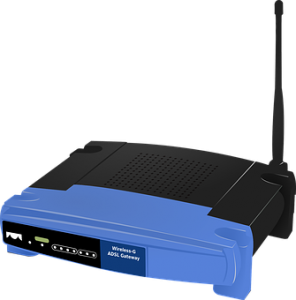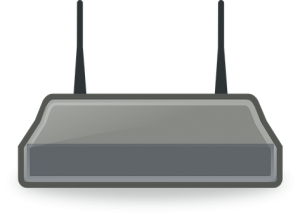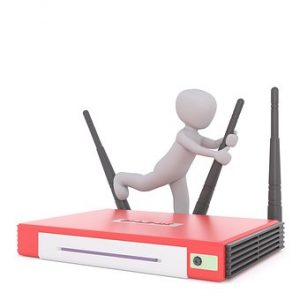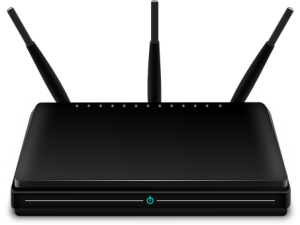WiFi Not Working
Imagine You’re deeply immersed in an online meeting, or perhaps you’re just on the brink of achieving a new high score in your favorite game, or maybe you’re halfway through the season finale of the latest hit show, and out of the blue, your WiFi takes a sudden hiatus. Your frustration is tangible as you ask yourself, Why is my WiFi not working?
 This digital disruption is too common in our hyperconnected world, where internet stability has become akin to a basic utility. It could be a puzzling case of your WiFi network disappearing from the list of available connections, or perhaps your Router has decided to take an unplanned vacation.
This digital disruption is too common in our hyperconnected world, where internet stability has become akin to a basic utility. It could be a puzzling case of your WiFi network disappearing from the list of available connections, or perhaps your Router has decided to take an unplanned vacation.
In this blog post, we’ll guide you through the maze of common WiFi issues, from invisible networks to non-responsive routers. With this guide, we aim to turn your distressed cry of My WiFi is not working! Into a confident declaration: I can fix this! Let’s begin this journey to understand better and solve your WiFi woes.
Why is My WiFi Not Working?
When you face issues like WiFi not working or the WiFi network not showing up, it’s essential to know some common reasons that might be causing these problems. At the core of this digital dilemma is often your Router, a crucial device that connects your home or office network to the wider internet.
- Outdated Router Firmware: One common reason your router WiFi may not work is outdated firmware. Manufacturers frequently release updates to fix bugs, add new features, and improve security. If your router firmware is outdated, it might cause issues with your WiFi connection.
- Incorrect Router Configuration: Another common issue is that your Router is not working due to incorrect configuration settings. The WiFi network may be set to a specific mode that your devices don’t support, or the security type may be incompatible with your devices. Incorrectly configured settings could result in your WiFi network not showing up or your router WiFi not working as expected.

- Router Positioning: Believe it or not, where your Router is placed can significantly impact your WiFi connection. If your router WiFi not working in certain areas of your home or workplace, it might be because the Router is too far away, or walls or other obstructions are blocking its signal.
- Router Overheating: Just like any other electronic device, your Router can also overheat, which can result in your Router not working properly. Ensure your Router is in a well-ventilated area and not enclosed in a tight space.
- ISP or Broadband Issues: Sometimes you might face WiFi working but no internet. The issue might not be with the Router. Problems with your Internet Service Provider or broadband connection can make you wonder why my WiFi is not working.
Remember, understanding these common issues can help you resolve current problems and prevent future ones.
How to Fix Router WiFi Not Working:
Whether you’ve been left wondering, Why is my Router not working? Or grappling with a WiFi stopped working issue, we know it can be annoying when your digital world comes to a standstill. This section will dive into common WiFi and router issues and how to fix them.
 The problems can range from the WiFi network not showing up on your device, the router WiFi not working properly, being connected to WiFi but the internet not working, or even the WiFi abruptly stopped working. Don’t worry; these problems are common and can often be fixed with some effortless troubleshooting steps.
The problems can range from the WiFi network not showing up on your device, the router WiFi not working properly, being connected to WiFi but the internet not working, or even the WiFi abruptly stopped working. Don’t worry; these problems are common and can often be fixed with some effortless troubleshooting steps.
- Restart Your Device: It might seem too simple, but often, when you find your WiFi stopped working or your WiFi network not showing up, a simple device restart can do the trick. It’s always a good first step to rule out any temporary glitches with your device.
- Check Your Internet Connection: When you encounter issues like WiFi not working or WiFi connected but not working, it’s essential to determine if it’s a device-specific issue or a broader problem with your internet service. Try connecting another device to the WiFi network and see if it has internet access. If it doesn’t, it’s likely a problem with the internet service itself, not your specific device.
- Reboot Your Router: If your router WiFi is not working or you’re experiencing issues and wondering why my Router is not working, a router reboot can often solve the problem. Unplug your Router, wait for a few minutes, then plug it back in. Give it a few minutes to reinitialize, then check to see if this resolves the issue.
- Check Your Router’s WiFi Settings: If your WiFi network is not showing up on your device, it might be due to some settings on your Router. Access your Router’s settings and ensure the WiFi is enabled and the correct frequency band (2.4GHz or 5GHz) is selected.
- Update Your Router’s Firmware: Sometimes, the issue router WiFi is not working properly. It might be due to outdated firmware. Check the manufacturer’s website for firmware updates for your specific router model.
- Check Your Device’s WiFi Settings: If you find your WiFi connected but not working, check your device’s WiFi settings. Ensure you are linked to the correct network and that WiFi is enabled on your device.
- Reset Your Router: If none of the overhead steps work, and you’re still left wondering, Why is my Router not working? Or dealing with a situation where your WiFi has stopped working entirely, you can consider resetting your Router to its factory settings. Please note that this will delete all your settings, and you’ll need to set up your Router again.
Remember, while these steps can solve many common issues, if your WiFi is still not working or your Router continues to give you trouble, it may be time to contact your Internet Service Provider or a professional for assistance. Or, consider upgrading your Router to a newer model.
Rest assured, WiFi and Router issues are common, but they’re often solvable with a bit of patience and troubleshooting. So, next time you find your WiFi or Router not working, take a deep breath and try these steps.
How to Prevent Router Not Working Issue:
If you’ve ever experienced the frustration of a WiFi not working issue, you know how important it is to maintain a healthy and stable internet connection. A proactive approach can save you from future headaches associated with WiFi and router issues. Here are some defensive measures to keep your connection smooth and efficient:
- Update Your Router Firmware Regularly: Outdated firmware can significantly contribute to WiFi issues, often resulting in your Router’s WiFi capabilities not performing optimally. Manufacturers frequently release updates to improve security and performance, so keep your Router’s firmware current.

- Familiarize and Optimize Your Router Settings: Understanding your Router’s settings can be beneficial. It allows you to optimize these settings according to your devices and your specific usage, reducing the chances of experiencing issues like your WiFi network not showing up.
- Place Your Router in a Strategic Position: The placement of your Router significantly impacts your WiFi coverage. If your WiFi signal isn’t reaching certain areas of your home, it might be due to poor router placement. By positioning your Router centrally and away from obstructions, you can ensure that WiFi is working efficiently throughout your home.
- Keep Your Router Cool: Like any other electronic device, your Router can overheat. Overheating may lead to your Router not working properly. To prevent this, place your Router in a well-ventilated area and away from other heat-producing devices.
- Reboot Your Router Periodically: While it might seem simple, regularly rebooting your Router can refresh your internet connection and potentially fix minor bugs or issues. This easy step can help prevent more significant issues down the line.
- Monitor Your Broadband Connection: Sometimes, your WiFi might stop working due to issues with your Internet Service Provider or broadband connection. Regularly monitoring your internet connection can help identify any issues early on and prevent situations where your WiFi stops working entirely.
These proactive measures can greatly decrease the likelihood of experiencing WiFi or router-related issues, providing a more consistent and reliable internet experience.
Conclusion:
 In wrapping up, it’s essential to recognize the complexities of connectivity issues. Whether you’re facing problems like WiFi not working or you’re puzzled by a situation where your router WiFi is not working, the key is to remain calm and systematically work through possible causes and solutions.
In wrapping up, it’s essential to recognize the complexities of connectivity issues. Whether you’re facing problems like WiFi not working or you’re puzzled by a situation where your router WiFi is not working, the key is to remain calm and systematically work through possible causes and solutions.
Understanding your network setup and identifying common issues can turn a frustrating scenario into a manageable task. Sometimes the problem might not even be with your WiFi or Router; it could be a case of WiFi working but no internet, indicating a potential issue with your internet service provider or modem.
While we’ve covered a lot in this blog post, remember that each situation may require a unique approach. With this blog post, Don’t let a temporary setback like a WiFi issue disrupt your digital life. To know more about Routers and resolve any specific issue related to your Router, please visit our Router Support Page.

